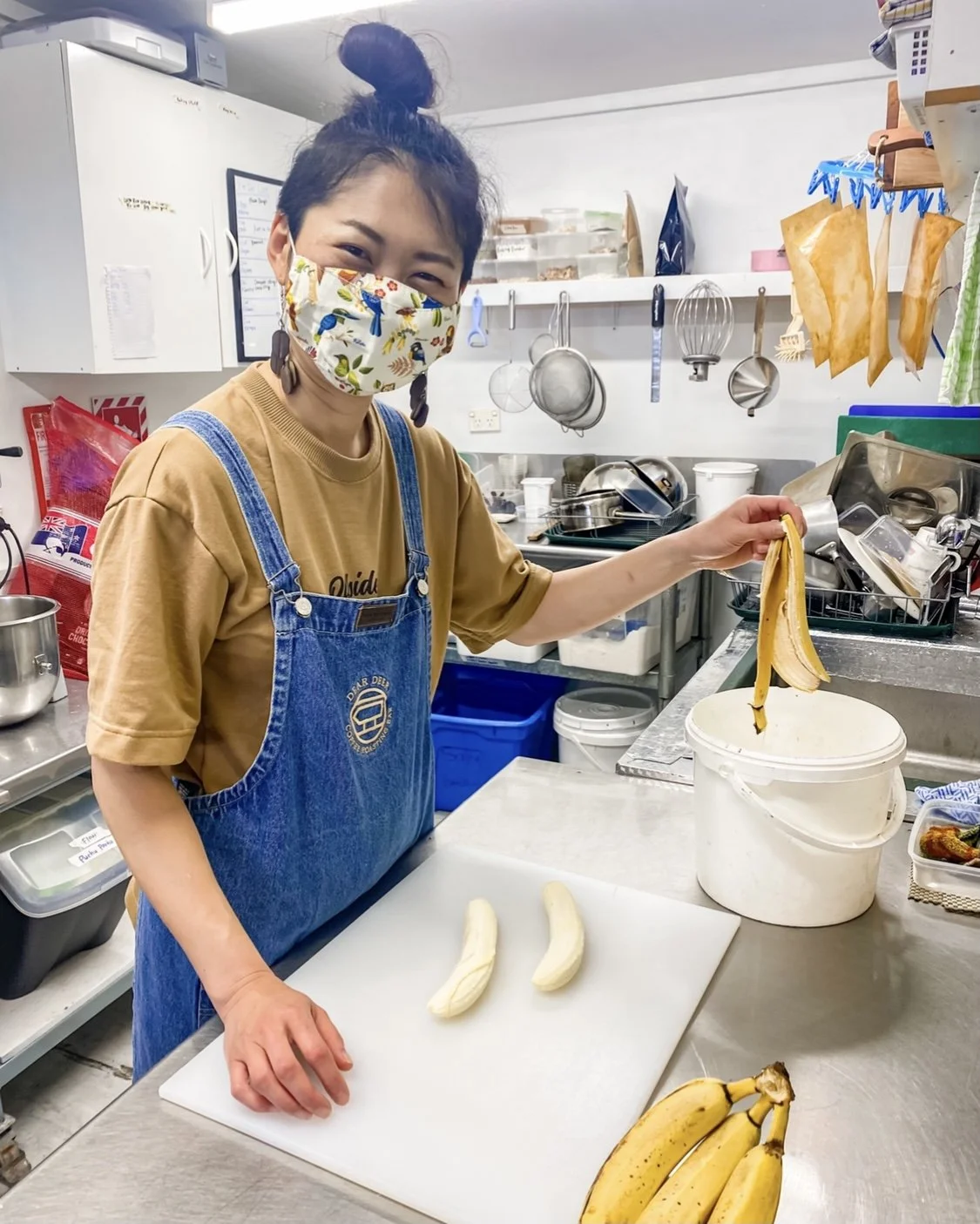
For Commercial Kitchens
A Quick Rundown
City to farm:
Links commercial kitchens with local farms to divert food scraps from landfill to beneficial reuse.
Shows commercial kitchens how to properly pre-treat their food scraps for collection.
Transports the pre-treated food from businesses in special storage containers to a local farm.
Promotes businesses that participate in the programme as “Doing the Right Thing”
C2F collects commercial food scraps in a box truck with a tail lift using a range of containers appropriate to the type and amount of food scraps generated. A bokashi compost system is used in the containers which are transported to a local farm.
Bokashi inoculant fermented the food scraps, pickling them to minimise odours and maximise rapid breakdown into topsoil.
What That Looks Like
120L Henkel bin for high nitrogen food scraps like meat, dairy, fish or soybean
140L Wheelie bins for lightweight produce
80-100L Wheelie bins for heavier food scraps
15L Buckets for small amounts of food scraps and coffee grounds
What We Provide
What food scraps we take
All fruits and vegetables, coffee grounds, cooked food, meat, dairy, citrus, onions, bread, baked goods, beans, pulses, grains and small amounts of soft paper, like napkins and paper towels.
*City to Farm does not take raw dough, liquids, fats or oils, large bones or compostable serve ware, plastics or bioplastics.
Large Food Scrap Producers
Small Food Scrap Producers
For large scrap producers, we provide wheelie bins and currently collect once a week. The bins act as large bokashi compost containers.
For small scrap producers, we provide 15L buckets for your scrap collection. The sealed buckets act as small bokashi containers.
What do the kitchen staff need to do?
Bokashi composting requires a bit of layering. After putting down 75-100mm pf food scraps, Zing* is sprinkled on top - which C2F provides.
This helps with odour and with breaking down the food scraps efficiently.
When the bins or buckets are full, the lids are strapped down.
The bins and buckets come with woody mulch in the bottom which keeps the food scraps out of the liquid generated when the food scraps break down and is a necessary part of the bokashi process.
*Zing is sawdust or bran with special food-grade micro-organisms for pickling the food scraps.
Bokashi Bucket Cross Section
Wheelie Bin Cross Section
"It’s a convenient, efficient, simple system that isn’t demanding of staff time, it’s no extra effort, we just have another bin. The cost is minimal and we have already diverted 5 tonnes of food scraps from landfill which is great considering we are a small business” - Nigel, Co-Owner and Chef at Two Spoons
Two Spoons is an allergy friendly cafe in Arkles bay, serving coffee and fresh, healthy foods. They have been with City to Farm since 2019.
Browns Bay Brewing operates from Deep Creek Brews & Eats. Over half a tonne of brewing grain is collected per week!
"After looking into the waste collection, disposal process, and the true ecological consequences of landfill sites, I realised we had to look at ways of redirecting our waste away from landfill.”
- Andrew, Owner of Browns Bay Brewing
Cafe Manly is a family-owned and operated Cafe that is also part of the Green Scheme programme with Hibiscus Coast Zero Waste and Whangaparāoa Business Association. As well as composting food scraps with City to Farm, they also offer plant-based options, free water refills for anyone, encourage customers to bring their own reusable cups and more!
Cafe Manly
There are many others on board too! More stories coming soon...
Want to know more about logistics, prices and bokashi systems provided? Click the button below.























